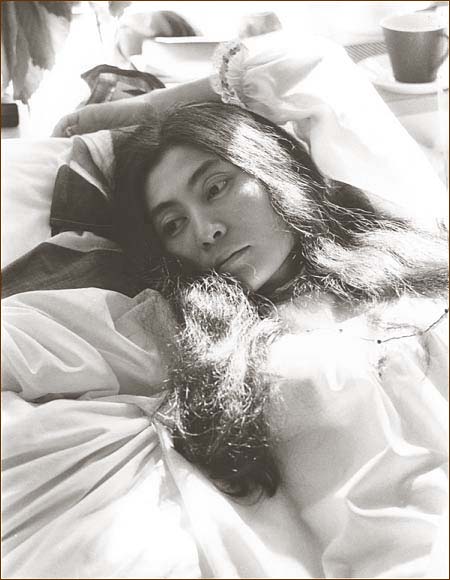It has become a matter of some dispute in the comments section of
this entry as to whether the Beatles' 1967 LP
Sgt. Pepper's Lonely Hearts Club Band is more or less rock & roll than the same band's 1969 LP
The Beatles, popularly known as The White Album, because the cover is almost entirely white. Now there is a great deal of subjectivity to the concept of rock & roll, particularly in a comparative setting such as this one, but this blog is known for its fearlessness.
But what does it mean to be rock & roll? The are certain verities that go along with that phrase and are indicative of rock & roll music: a basis in the blues, danceability, electric guitars, speed, shouted lyrics, disdain for authority, concision, references to cars and lust, Mick Jagger on backing vocals, 4/4 time, uses of girl's names. You'll find that almost all songs by Chuck Berry and the Clash contain most of these elements. In grading out songs for their rock & roll-ness, we will add credit for any of these qualities; similarly, points off for wimpiness, references to classical literature, and the presence of clarinets.
Let us further stipulate that while being "rock & roll" is undoubtedly a good thing, it is not the be-all and end-all when it comes to quality music, or even to quality pop music. Notice that there are things that are certainly positive aspects of good pop music, such as originality and humor, that are neither rock & roll nor not rock & roll. We are not assessing quality here. For instance, the Rolling Stones' most rock & roll song might be "Rip This Joint," which is speedier, more danceable, and more concise than "Gimme Shelter," but is not nearly as good a song. Then again, hardly anything is. Art Garfunkel's "All I Know" is indisputably one of the greatest singles of what Casey Kasem used to call the Rock Era, yet it is not rock & roll at all.
I have developed the following comparative ten-point scale for grading out songs, with one point being not rock & roll at all, and ten points being totally rocked out:
1: "To All the Girls I've Loved Before"
2: "Baby I'm-a Want You"
3: "Toy Soldiers"
4: "The Rubberband Man"
5: "Stacy's Mom"
6: "Riot in Cell Block 9"
7: "The Only Difference Between Martyrdom and Suicide Is Press Coverage"
8: "Thunder Road"
9: "White Room"
10: "Fortunate Son"
OK, now on to the main event, which is to determine whether or not
Sgt. Pepper's Lonely or
The Beatles is the more rock & roll album. Here are the song listings in toto, with each song rigorously tested and compared with the above ten-point scale:
Sgt. Pepper's Lonely"Sgt. Pepper's Lonely Hearts Club Band": 6
"A Little Help From My Friends": 7
"Lucy in the Sky With Diamonds": 7
"Getting Better": 5
"Fixing a Hole": 4
"She's Leaving Home": 3
"Being for the Benefit of Mr. Kite": 4
"Within You Without You": 0
"When I'm Sixty-Four": 3
"Lovely Rita": 7
"Good Morning, Good Morning": 8 (Could have been a 9 except that the sax quartet has ever since wormed its way onto every single record produced by Jeff Lynne)
"Sgt. Pepper's Lonely Hearts Club Band (Reprise)": 7
"A Day in the Life": 6
Well, that was a bit more rockin' than I expected. Now let's take a look at the competition, and I would recommend getting yourself a nice beverage at this point, because this is a really long album:
The Beatles"Back in the U.S.S.R.": 8
"Dear Prudence": 3
"Glass Onion": 5
"Ob-La-Di, Ob-La-Da": 2
"Wild Honey Pie": 3
"The Continuing Story of Bungalow Bill": 3
"While My Guitar Gently Weeps": 7
"Happiness Is a Warm Gun": 7
"Martha My Dear": 2
"I'm so tired [sic]": 6
"Blackbird": 2
"Piggies": 2
"Rocky Raccoon": 3
"Don't Pass Me By": 4
"Why don't we do it in the road? [sic]": 5
"I Will": 4
"Julia": 3
"Birthday": 6
"Yer Blues": 8
"Mother Nature's Son": 1 (Could have been a 2 except it was later covered by John Denver)
"Everybody's Got Something to Hide Except Me and My Monkey": 8
"Sexy Sadie": 5
"Helter Skelter": 9
"Long, Long, Long": 1
"Revolution 1": 7
"Honey Pie": 1
"Savoy Truffle": 6
"Cry Baby Cry": 4
"Revolution 9": -10
"Good Night": 2
How to assess the winner here? The average song on
Sgt. Pepper's Lonely rates a 5.15; the average song on
The Beatles rates a 3.9. In other terms,
Sgt. Pepper's Lonely rocks roughly as hard as "Stacy's Mom," while
The Beatles rocks like "The Rubberband Man." That doesn't seem quite right, but you can't argue with science. So on that simple measure, the poster yclept "Joe" wins the round.
And yet, and yet. If we look at the sheer quantity of rockin'ness,
The Beatles has four songs that rock as hard as anything on
Sgt. Pepper's Lonely, and ten songs -- a whole album's worth -- that rock more than the average
Pepper tune.
So the verdict is obvious:
The Beatles, a/k/a The White Album, is way too long.











